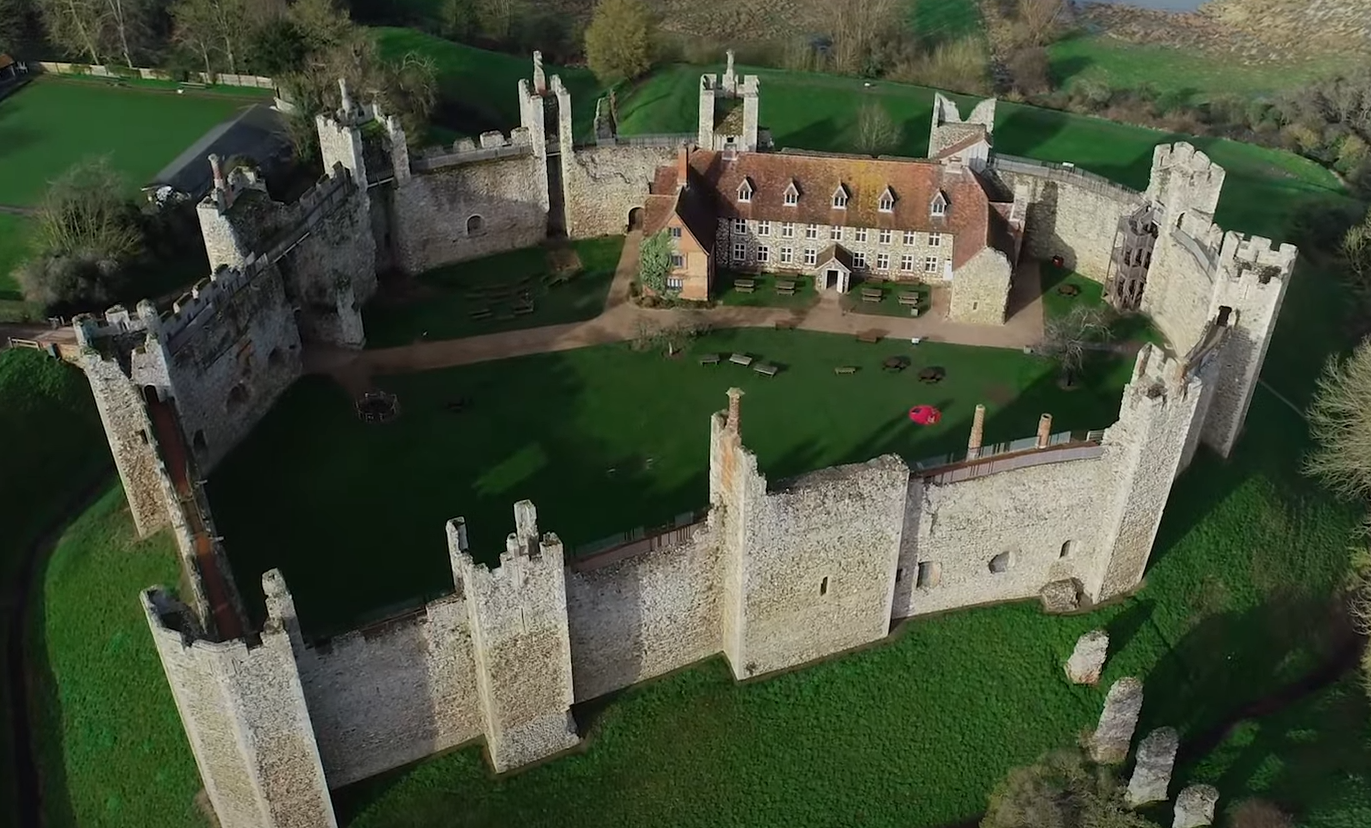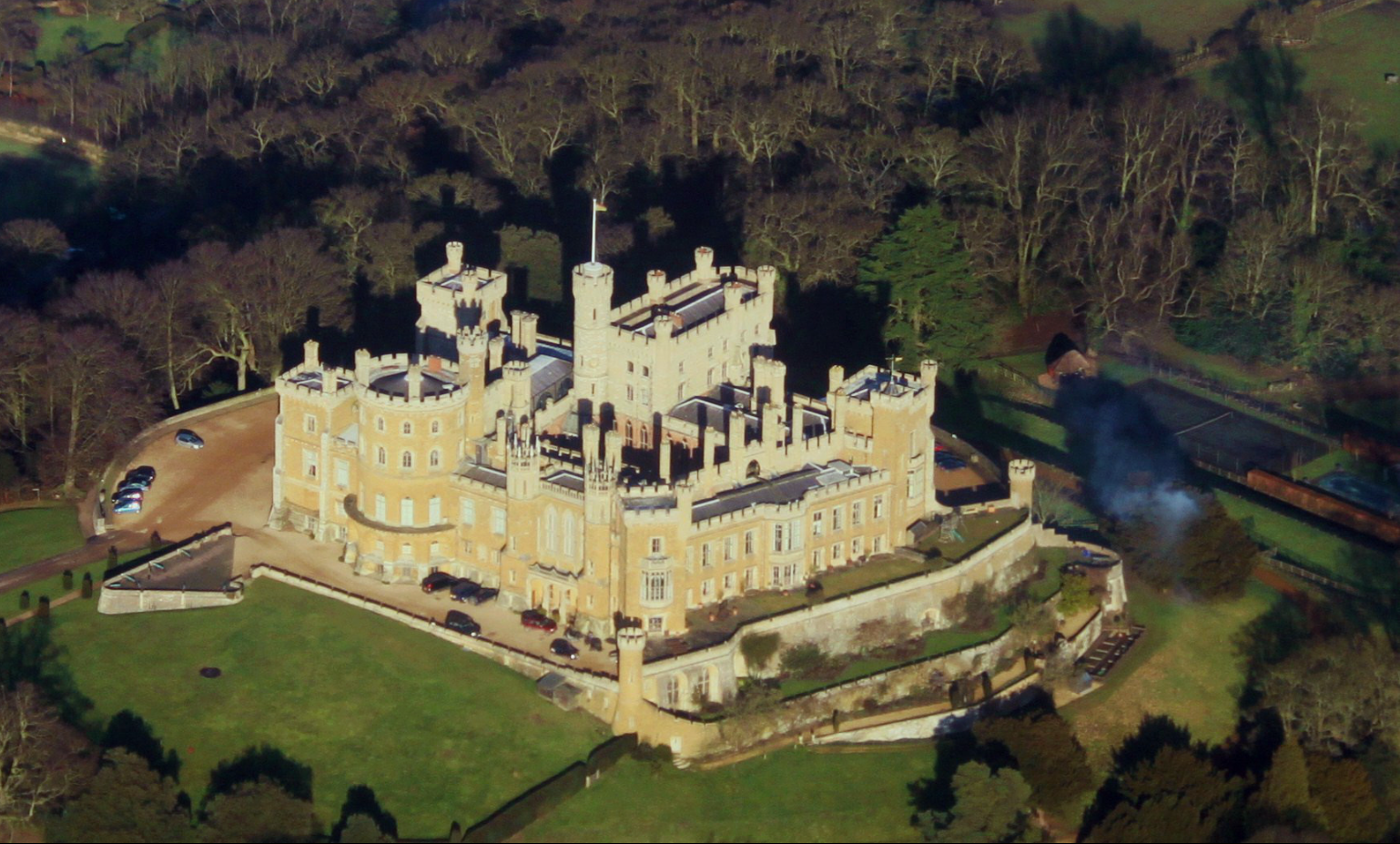Hugh Bigod
The Bigod family features in the history of East Anglia and the connection to the support of
Stephen of Blois.
Hugh Bigod, 1st Earl of Norfolk (1095–1177)
The profile for Guy de Botetourt references an IPM featuring
Roger de Bygot, alias le Bigod, earl of Norfolk and marshal of England.
Hugh Bigod, 1st Earl of Norfolk (1095–1177) was the second son of Roger Bigod (also known as Roger Bigod)
(died 1107), sheriff of Norfolk and royal advisor, and Adeliza, daughter of Robert de Todeni.
Hugh Bigod married firstly to Juliane de Vere (died c. 1199). She was the daughter of Aubrey de Vere II
and Adeliza de Clare, the daughter of Gilbert Fitz Richard de Clare, 2nd Earl of Clare.
The marriage was dissolved before 1156. They had one son:
Roger Bigod, 2nd Earl of Norfolk (born c. 1144–5). He married Ida de Tosny, had issue.
Top
Hugh initially supported Stephen of Blois as king of England. On the death of Henry I in 1135, his nephew
Stephen usurped the throne, despite the oath Stephen and the barons had sworn to accept Henry's daughter
Empress Matilda as his successor. It was Bigod who asserted that, in his last days, Henry I had named Stephen
to become king at the expense of his daughter Matilda.[3] Civil war resulted when, in 1139,
Matilda commanded the military strength necessary to challenge Stephen within his own realm.
King Stephen initially had the support of the English barons, but in 1136 he was stricken with sickness and a
report of his death was quickly spread abroad. Hugh Bigod seized and held Norwich castle.
Stephen, quickly recovering, laid siege to the city and Hugh was compelled to surrender.[4]
In February 1141 Bigod fought on Stephen's side in the First Battle of Lincoln, after which the
Earl deserted the captured king. In July of that year, he was granted the earldom of Norfolk by the
Empress Matilda but he appears to have assumed a position of armed neutrality during the civil war,[5]
rather than actively siding with the supporters of the empress.[6]
As Earl of Norfolk, Bigod's landholdings included Castle Acre,[7] Geldeston[8] and Hethel[9] as well as land at
Earl Soham, Framlingham, and Thetford[10]
He supported his first wife's brother-in-law, Geoffrey de Mandeville, 1st Earl of Essex, during his rebellion
against King Stephen in 1143–44.[11] During the disagreement between King Stephen and Archbishop Theobald in 1148,
Hugh Bigod sided with the archbishop and received him in his stronghold, his Castle of Framlingham,
but joined with others in negotiating a reconciliation between the king and the archbishop.
Battle of Lincoln
Here I, once more, get confused! The fact that there were two
Battles of Lincoln.
- https://en.wikipedia.org/wiki/Battle_of_Lincoln_(1141)
- https://en.wikipedia.org/wiki/Battle_of_Lincoln_(1217)
The first was between King Stephen and Robert of Gloucester
(fighting for the Empress Matilda)
The second between Louis Prince of France and William Marshal (fighting for Henry III, who was only
a child). Louis had proclaimed himself King of England and was supported by the rebel barons who resisted
the rule of King John.
The Battles of Lincoln - 1141 and 1217
The Battle of Lincoln, or the First Battle of Lincoln, occurred on 2 February 1141 in Lincoln, England
between King Stephen of England and forces loyal to Empress Matilda. Stephen was captured during the
battle, imprisoned, and effectively deposed while Matilda ruled for a short time.
The Second Battle of Lincoln occurred at Lincoln Castle on Saturday 20 May 1217,
during the First Barons'
War, between the forces of the future Louis VIII of France and those of King Henry III of England. Louis's
forces were attacked by a relief force under the command of William Marshal, 1st Earl of Pembroke.
Thomas, Count of Perche, commanding the French troops, was killed and Louis was expelled from his base in
the southeast of England. The looting that took place afterwards is known as the "Lincoln Fair".
The citizens of Lincoln were loyal to Louis so Henry's forces sacked the city.
Ralph Somery
Ralph De Somery, son and heir, married Ida Longespee. The had no issue. Ralph De Somery died before 1220.
His widow, Ida, married (2nd) about Jan. 1220 (as his second wife) William de Beauchamp, Knt., son
and heir of Simon de Beauchamp, by his wife Isabel. He was born about 1186. They had three sons,
Simon, Knt., William, Knt., and John, and four daughters, Joan (nun) Maud, Beatrice, and Ela.
Sir William de Beauchamp died shortly after 28 Dec. 1260.
Ida Longespee was living in 1266-7, but died testate before 1269-70.
Framlingham Castle
Framlingham Castle was built by the Bigods, a powerful Norman family in the 12th century. The first stone buildings at the site were probably the work of Hugh Bigod, 1st Earl of Norfolk (d.1177). But it was under his successor, Roger Bigod II (d.1221), that the huge stone curtain walls we see today were built.
In 1213 Roger Bigod II entertained King John at the castle. But by 1215 relations had soured – Roger, along with 25 other barons, challenged the high military taxes levied by King John and forced him to accept Magna Carta. Enraged, John laid siege to Framlingham in 1216. After two days, the castle surrendered.
This loss of the castle was only temporary, however – it was later restored to the Bigods.

